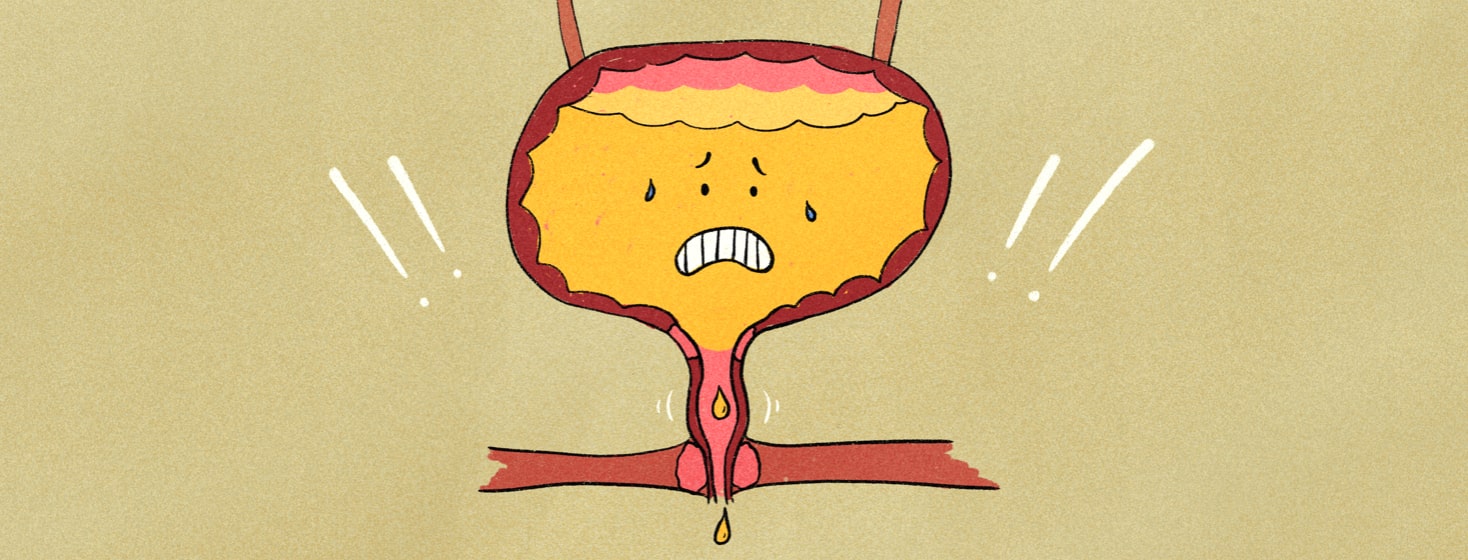Urinary Dysfunction and Incontinence
Bladder cancer and cancer treatments can damage the nerves and muscles that help control the urine flow from your bladder. This can cause problems with urination (urinary dysfunction) and leaking (urinary incontinence).1
Urinary symptoms of bladder cancer
Early signs of bladder cancer can be similar to those of urinary tract infections (UTIs). Early symptoms are usually mild and come and go.2
The most common symptom of bladder cancer is blood in the urine. But there also are less common symptoms, including:2
- A need to urinate very often or urgently
- Urinary incontinence
- Pain or burning during urination
- A feeling that you need to urinate right away, even if your bladder is not full
- Having trouble urinating
- Having a weak urine stream
These symptoms are more likely to be linked to a different condition, like a UTI, an enlarged prostate, or kidney stones. But they also can be early signs of prostate cancer. If you have any of these symptoms, it is important to get them checked by a doctor.2,3
In addition, research has found that people who have acute urinary retention have an increased risk of developing certain cancers. These include prostate and bladder cancer. Acute urinary retention is when you are unable to urinate even though you have a full bladder. It happens suddenly and lasts a short time, but it can cause severe pain and be life-threatening. It mainly affects men.4
Side effects from bladder cancer treatment
Some bladder cancer treatments can cause urinary dysfunction and incontinence. Treatment for other cancers in the pelvic area, such as prostate cancer, can lead to similar side effects.5
Radiation therapy
Radiation therapy can irritate the urinary tract. The urinary tract includes the kidneys, ureters, urethra, and bladder. Irritation of the urinary tract due to radiation is called radiation cystitis. Symptoms can include:5
- Pain or burning when you urinate
- Blood in your urine
- Problems fully emptying your bladder
- Feeling that you need to urinate urgently or very often
- Leaking urine when you sneeze or cough
- Bladder spasms, cramps, or pain in your pelvic area
Most symptoms go away when radiation treatment ends. If necessary, your doctor may be able to prescribe medicine to help.5,6
Chemotherapy
Chemotherapy can damage cells in the bladder and kidneys. This irritates your bladder, so it may feel as though you have a UTI. Symptoms may include:7
- Urinating very often
- Urinating with urgency
- Feeling pain and discomfort
- Small amount of blood in your urine
Immunotherapy
Immunotherapy can damage cells in the bladder and kidneys. UTIs can be a side effect of immunotherapy.5,8
Surgery
Bladder cancer surgery can cause urinary dysfunction. One possible side effect of bladder surgery is urinary incontinence. Surgery can also increase the risk of UTIs. Urinary dysfunction following surgery also can include:5,9
- Problems fully emptying your bladder
- Being unable to urinate when you have a full bladder
- Bladder spasms
Managing your symptoms
If you experience urinary dysfunction or incontinence, speak to your doctor. They can give you advice on managing your symptoms. This advice may include limiting alcohol, caffeine, and foods that irritate your bladder. Your doctor also may be able to refer you to a physical therapist who can help you manage your symptoms.1,5

Join the conversation